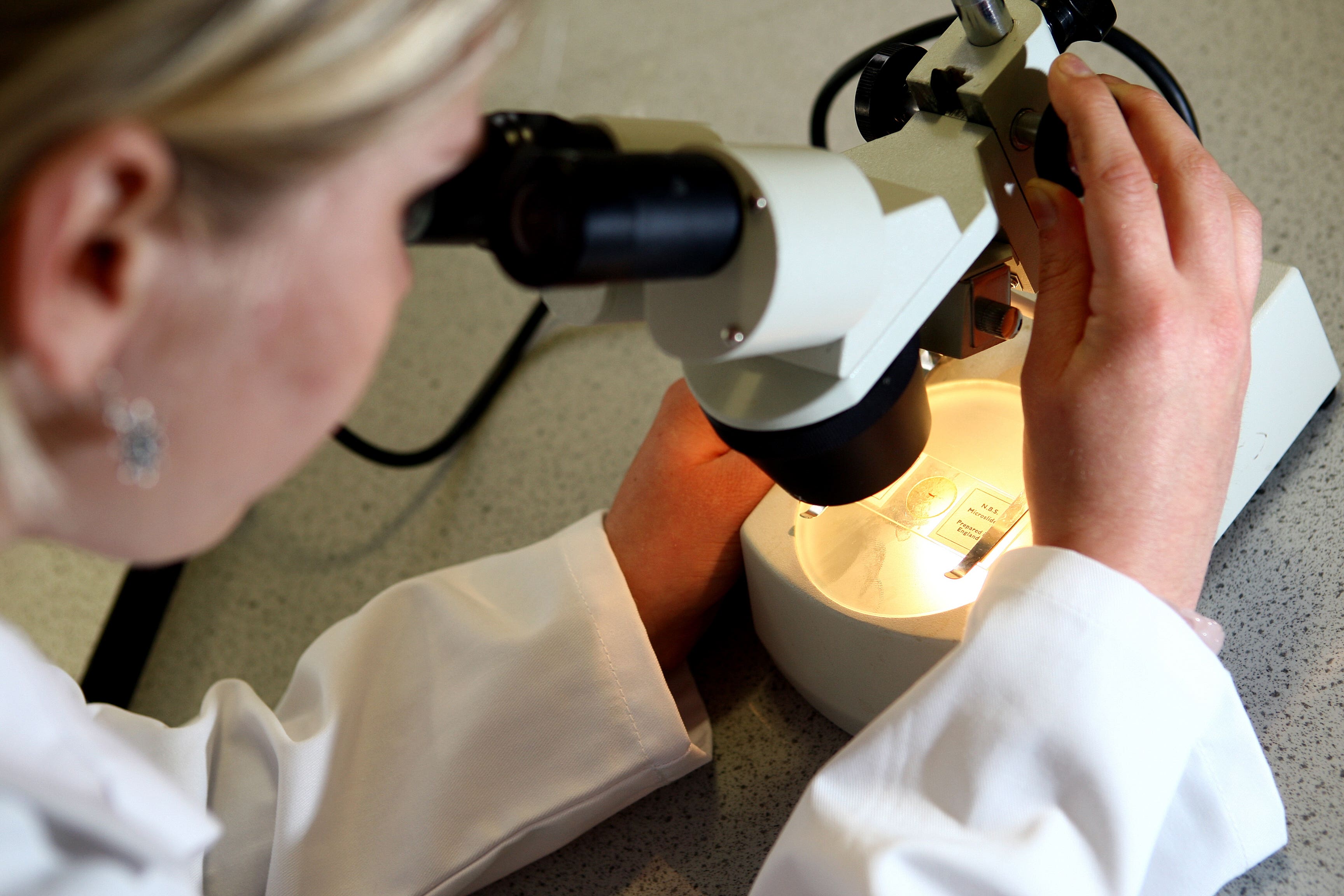DIY cervical screening test could be rolled out on NHS
Experts say women may refuse testing due to embarrassment and worries about the test causing pain
Your support helps us to tell the story
From reproductive rights to climate change to Big Tech, The Independent is on the ground when the story is developing. Whether it's investigating the financials of Elon Musk's pro-Trump PAC or producing our latest documentary, 'The A Word', which shines a light on the American women fighting for reproductive rights, we know how important it is to parse out the facts from the messaging.
At such a critical moment in US history, we need reporters on the ground. Your donation allows us to keep sending journalists to speak to both sides of the story.
The Independent is trusted by Americans across the entire political spectrum. And unlike many other quality news outlets, we choose not to lock Americans out of our reporting and analysis with paywalls. We believe quality journalism should be available to everyone, paid for by those who can afford it.
Your support makes all the difference.A DIY cervical screening test that women can do at home has been described as ‘a game changer’.
The self-testing kit could lead to around 400,000 more checks every year, with NHS leaders saying they are looking at making it available in England.
The test works by detecting human papillomavirus (HPV), a group of viruses which cause no symptoms but which can lead to cervical cancer.
About 13 high-risk types of HPV are known to cause 99.7 per cent of all cervical cancers.
A new trial, known as the King’s College London YouScreen trial, is the biggest to date and shows how the DIY kit can boost the numbers of women undergoing screening.
Figures show cervical screening uptake is declining, with nearly a third of women in England – particularly younger women – not taking up their most recent test.
Experts say women may refuse testing due to a lack of convenient appointments, embarrassment and worries about the test causing pain.
In the new trial, women used a vaginal swab – like a long cotton bud – to take their sample either at home or in their GP practice.
Those who took the test at home then simply posted off their kit for free to a laboratory.
The trial results suggest over a million more women could undergo screening every three years in England – or 400,000 more every year – if the DIY tests were rolled out.
Lead investigator Dr Anita Lim, from King’s College London, said: “Self-sampling has been hailed as a game-changer for cervical screening and we now have evidence in a UK population to show that it really is.
“Women who don’t come for regular screening are at the highest risk of developing cervical cancer.
“Cervical screening participation has been falling in England for over two decades. Currently a third of eligible women aren’t getting screened regularly and in some parts of London this is as high as 50%.
“It is crucial that we make cervical screening easier by introducing innovations like self-sampling, alongside the current cervical screening programme, to help protect more people from this highly preventable cancer. Self-sampling can do this by offering people choice and convenience.”

Published in the journal eClinicalMedicine, the trial included 17,604 kits being sent to people directly through the mail, of which 13 per cent were returned.
Some 10,849 women were also offered a kit when speaking to their GP surgery about something else, of whom 85 per cent accepted and 6,061 (56 per cent) returned a self-sample either through the post or took the test at the surgery.
Half of all those who returned a self-sample were at least two years overdue screening.
Some 64 per cent were from ethnic minority groups.
Dr Lim said: “The YouScreen trial has given us the evidence we need to demonstrate that self-sampling helps get more women screened in England.
“It’s really encouraging that we received self-samples from groups that have been historically underserved including people from deprived and ethnic minority backgrounds, LGBTQI+, people with learning disabilities and victims of sexual violence.”
Dr Lim said the 13 per cent figure for people returning kits that were mailed to their homes is in line with previous studies but it was exciting that 56 per cent of people returned a kit when offered one at their GP practice.
She said this is “very promising in this group of people who haven’t been coming for screening”.
NHS director of screening Deborah Tomalin said: “It’s extremely promising that this study suggests simple DIY swab tests could have a really positive impact in supporting more women to take part in cervical screening from their own homes, and the NHS will now be working with the UK National Screening Committee to consider the feasibility of rolling this out more widely across England.
“In the meantime, if you are invited for cervical screening by the NHS, it’s vital that you come forward – it could save your life and remains vital towards our ambition of eradicating cervical cancer in England within the next two decades.”
Professor Peter Sasieni, head of the research group at King’s College London and now at Queen Mary University of London, said the UK is “well on the way to turning cervical cancer into a rare disease”.
Other countries such as the Netherlands, Australia, Denmark and Sweden have already introduced the self-testing kits.
A Department of Health and Social Care spokesman said: “It’s crucial that access to screening and tests is made as simple and convenient as possible…
“If we’re going to succeed in our mission to make the NHS fit for the future, we need to catch illness earlier so we can treat it faster.”